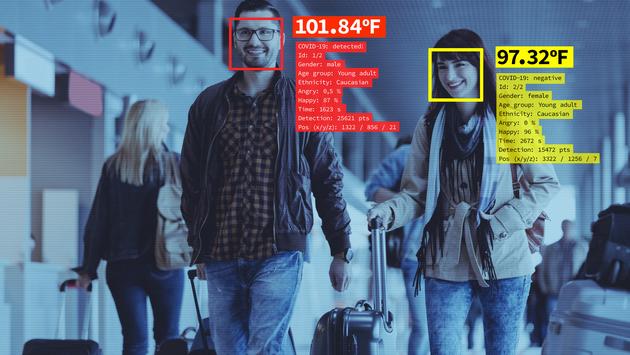Navigating Airport Security: Know Your Rights Regarding Facial Scans and Private Screenings

In today’s fast-evolving air travel landscape, passengers are increasingly encountering new technologies and procedures, such as biometric verification methods including facial recognition and fingerprinting. While these advancements aim to streamline the check-in and boarding processes, they also raise important questions about privacy, choice, and consent.
Understanding Biometric Screening Options
Biometric screenings have become more prevalent, offering a touchless, efficient alternative for identity verification. However, passengers should be aware that participation in these procedures is not mandatory. Travelers have the right to opt out of biometrics like facial scans, and airlines, along with U.S. Customs and Border Protection (CBP) and the Transportation Security Administration (TSA), acknowledge this option. Opting out may require additional steps, but it is a vital right for those concerned about privacy or the accuracy of these technologies.
The Right to Privacy and Private Screenings
Security measures at airports, while essential for safety, sometimes involve physical pat-downs. Passengers should know that they can request these screenings to be conducted in a private room, ensuring a higher level of personal privacy. This right is particularly relevant in situations where a passenger might feel uncomfortable with public pat-downs.
Special Considerations for Vulnerable Groups
Acknowledging the need to balance security with convenience, the TSA has adjusted its screening procedures for certain groups, such as children under 12 and adults over 75. These adjustments allow for a less intrusive screening process, recognizing the lower risk associated with these age groups. However, passengers should be informed about the potential security implications of these policies.
Digital Privacy at Airports
The issue of digital privacy at border crossings has become increasingly complex. Recent legal developments have seen a pushback against warrantless searches of electronic devices, although the legal landscape remains divided. Travelers carrying sensitive information should consider precautions, such as backing up data to the cloud and using secure lock methods on their devices. Understanding your rights in these situations is crucial, especially when facing requests to unlock electronic devices.
Facilities for Nursing Mothers and Families
Recognizing the challenges faced by traveling parents, the U.S. government has taken steps to ensure airports provide adequate facilities for nursing mothers and diaper-changing stations accessible to both parents. The Friendly Airports for Mothers (FAM) Act mandates private nursing rooms and baby-changing tables, improving the travel experience for families.
Exemptions for Child Nourishment
The TSA offers exemptions to the standard liquid rules for travelers carrying breast milk, formula, or baby food. These exemptions acknowledge the unique needs of traveling parents and caregivers, allowing them to bring necessary nourishments without adhering to the typical liquid restrictions.
Accommodating Religious and Cultural Practices
The TSA aims to respect passengers’ religious and cultural sensitivities during screenings. Travelers with specific clothing or artifact-related concerns due to religious beliefs can discuss these with TSA agents to seek accommodations, ensuring that security procedures do not infringe upon their religious or cultural practices.
As the airport experience continues to evolve, understanding your rights and options can significantly impact your travel experience. Whether it concerns opting out of facial recognition, requesting private screenings, or navigating exceptions for children and sensitive items, being informed empowers passengers to make choices that best suit their privacy and security needs.
